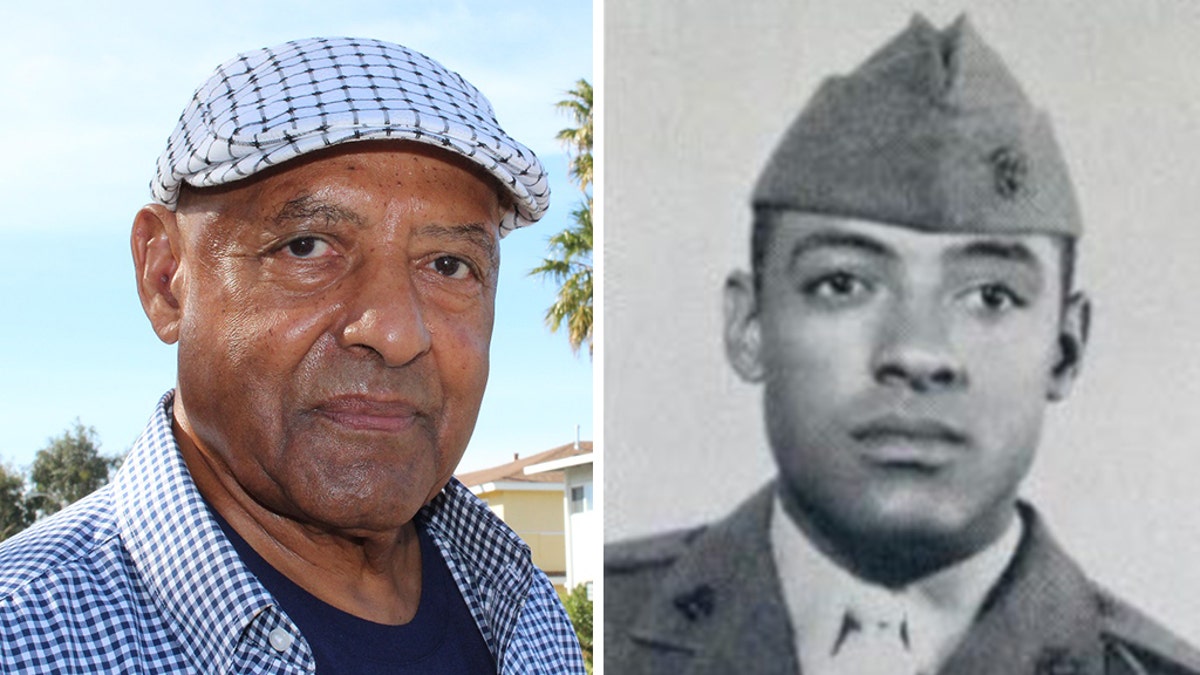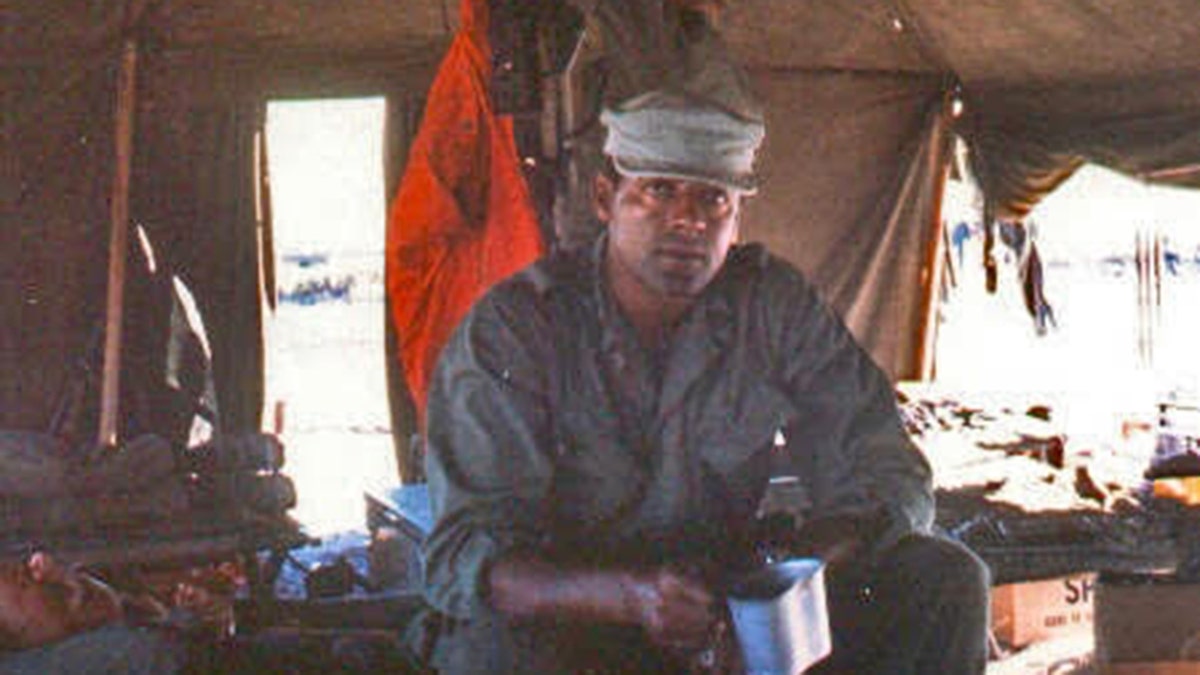
On Oct. 17, President Trump will award the Medal of Honor to Sgt. Maj. John L. Canley. (Congresswoman Julia Brownley)
Marine veteran John Canley is set to receive the nation’s highest military honor.
Canley led Marines through the streets fighting in the Vietnamese city of Hue more than 50 years ago. The Battle of Hue took place during the Tet Offensive, Jan. 31-Feb. 6, 1968. Canley, now 80 and a retired sergeant major, carried several wounded Marines while under heavy enemy fire and assumed command to maintain the unit’s organization and morale in what’s known as the most chaotic battle of the Vietnam War.
Canley was wounded more than once during the fighting, but still continued pushing forward.
“So they hear a noise and they look back and there’s Canley. He’s walking down, upright, not running, walks over the little berm, picks up the first guy, throws him over his shoulder and walks back,” John Ligato, a Marine and FBI agent, told Newsweek about Canley’s heroics. “So there’s two independent eyewitnesses on this. ... Canley says to them, individually, ‘Keep down, there’s a lot of incoming.’”
On Tuesday, President Trump announced that Canley will be awarded the Medal of Honor on Oct. 17 for his “conspicuous gallantry.”
Canley will be the sixth American to receive the honor from Trump and the third Vietnam War veteran, The Hill reported.
“It means a lot to me,” Canley told USA Today. “Mostly for my Marines because we’ve had to wait 50-plus years to get any kind of recognition.”

Canley demonstrated an almost Zenlike calm under fire during the Tet Offensive. (Congresswoman Julia Brownley)
Ligato said he was amazed at Canley’s Zenlike calm during battle.
“He never ran and he never ducked,” Ligato told Newsweek. “You know, it’s just amazing. I don’t know if he had some sort of death wish or what — Gunny says that he just gets into a zone and does what he has to do. ... I don’t know how the bullets didn’t hit him.”
Canley, who spent 28 years in the service, left El Dorado, Arkansas, at the age of 15 to join the Marines.
He was deployed to Vietnam several times from 1965 to 1970 and his efforts saved the lives of many men, earning him the Navy Cross.
“Being a leader is about taking care of your people,” Canley said in a news release in February. “If you do that, they will take your view, and you don’t have to worry about your mission, and it really doesn’t matter whether or not it’s military or civilian: if you’re in a leadership position, you should always remember that.”
The Associated Press contributed to this report.









































